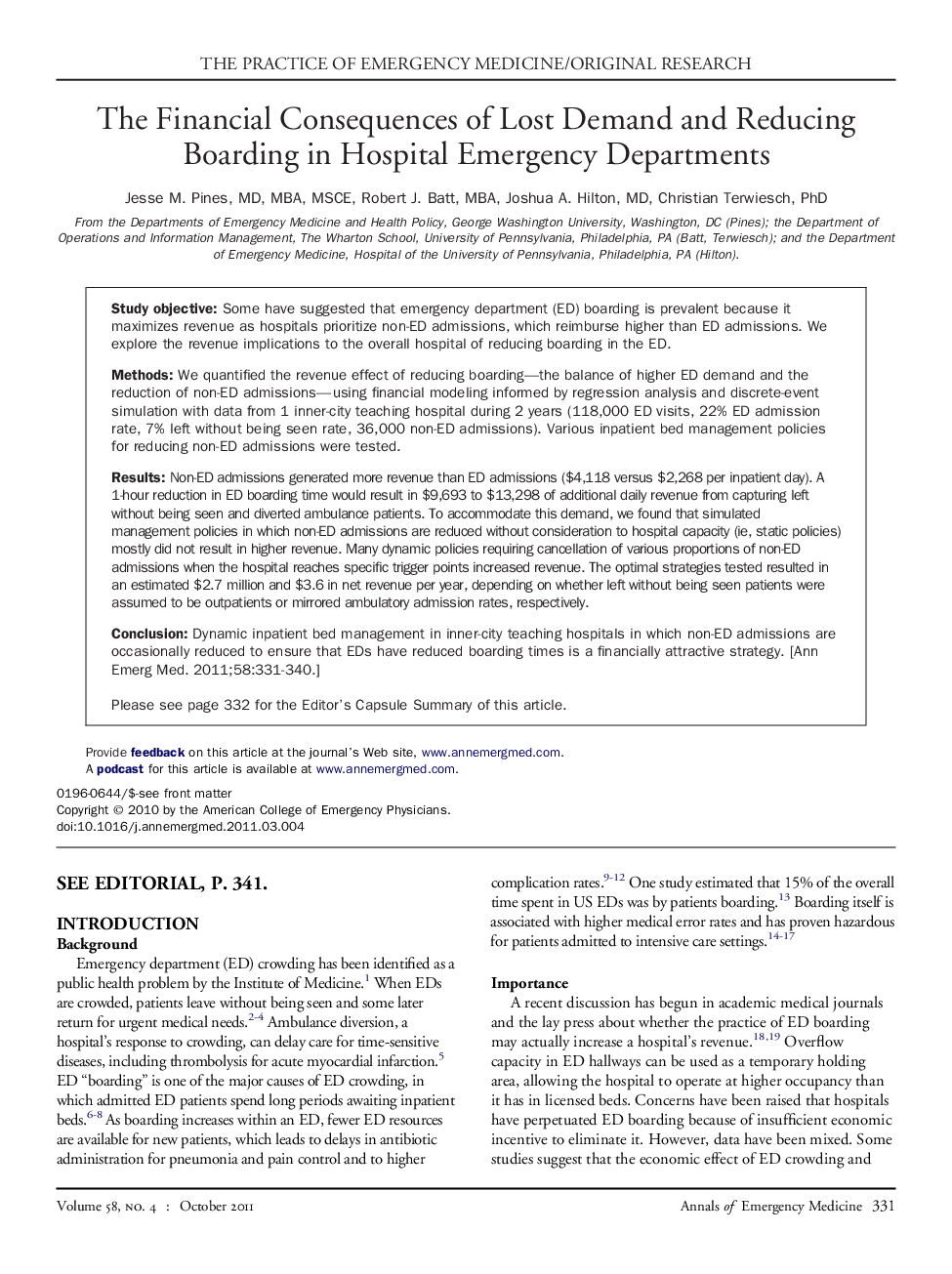| Article ID | Journal | Published Year | Pages | File Type |
|---|---|---|---|---|
| 3230937 | Annals of Emergency Medicine | 2011 | 10 Pages |
Study objectiveSome have suggested that emergency department (ED) boarding is prevalent because it maximizes revenue as hospitals prioritize non-ED admissions, which reimburse higher than ED admissions. We explore the revenue implications to the overall hospital of reducing boarding in the ED.MethodsWe quantified the revenue effect of reducing boarding—the balance of higher ED demand and the reduction of non-ED admissions—using financial modeling informed by regression analysis and discrete-event simulation with data from 1 inner-city teaching hospital during 2 years (118,000 ED visits, 22% ED admission rate, 7% left without being seen rate, 36,000 non-ED admissions). Various inpatient bed management policies for reducing non-ED admissions were tested.ResultsNon-ED admissions generated more revenue than ED admissions ($4,118 versus $2,268 per inpatient day). A 1-hour reduction in ED boarding time would result in $9,693 to $13,298 of additional daily revenue from capturing left without being seen and diverted ambulance patients. To accommodate this demand, we found that simulated management policies in which non-ED admissions are reduced without consideration to hospital capacity (ie, static policies) mostly did not result in higher revenue. Many dynamic policies requiring cancellation of various proportions of non-ED admissions when the hospital reaches specific trigger points increased revenue. The optimal strategies tested resulted in an estimated $2.7 million and $3.6 in net revenue per year, depending on whether left without being seen patients were assumed to be outpatients or mirrored ambulatory admission rates, respectively.ConclusionDynamic inpatient bed management in inner-city teaching hospitals in which non-ED admissions are occasionally reduced to ensure that EDs have reduced boarding times is a financially attractive strategy.
